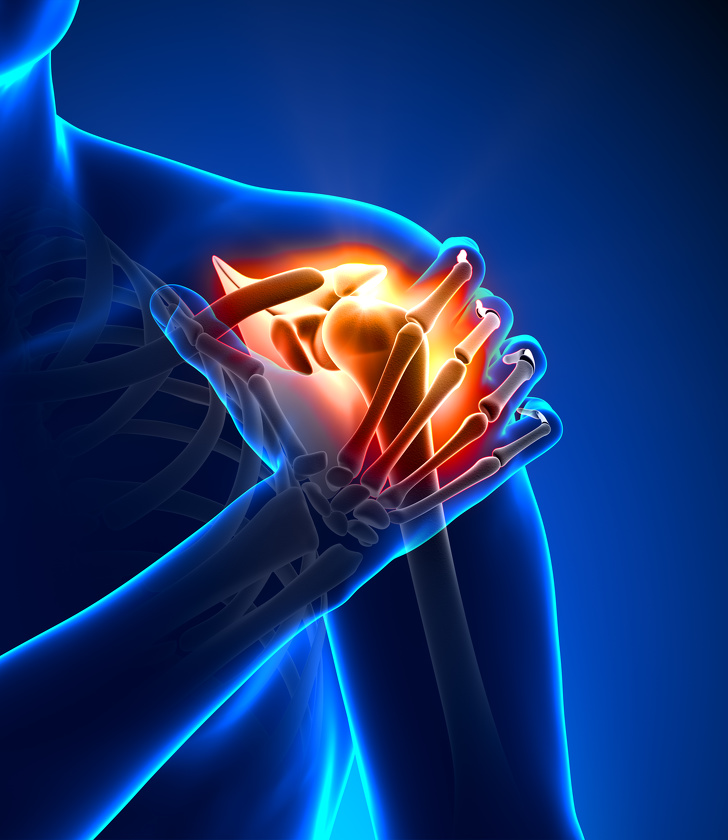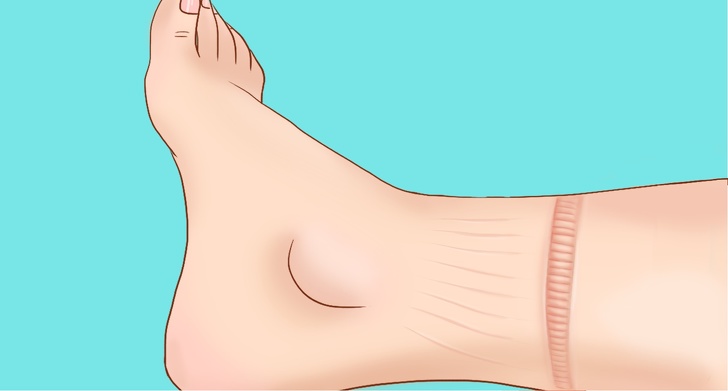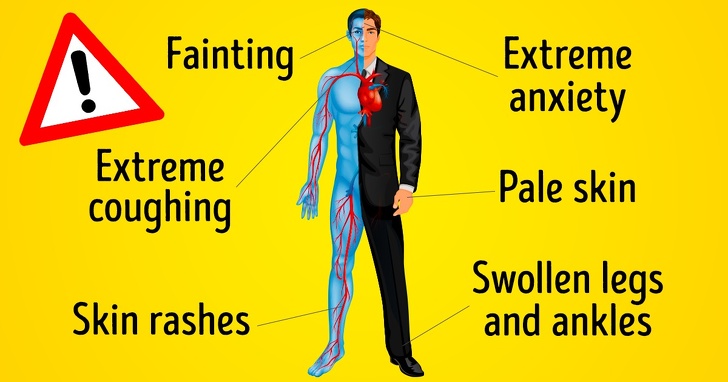Heart disease remains a leading cause of death, claiming over 610,000 lives annually in the United States, as reported by the Centers for Disease Control and Prevention (CDC). Both men and women are affected by heart problems, with lifestyle factors contributing significantly to this growing health crisis.
Early detection is critical to preventing life-threatening heart conditions. Here are 8 important warning signs of heart disease that you should be aware of to ensure you seek medical attention at the right time.
Signs Heart Is Not Working Properly
8. Pain Radiating to the Arm

Pain in the chest radiating to the left arm is commonly associated with heart attacks. Men often experience pain in the left arm, while women may feel pain in either arm or the elbows. The pain occurs because the heart’s pain signals travel through the nervous system, leading to confusion in the brain, which causes discomfort in other areas of the body.
7. Persistent Coughing and Shortness of Breath

If you’re experiencing a persistent cough that produces pink-tinged sputum or a feeling of being out of breath, this could be a sign of heart failure. This condition occurs when the heart is unable to pump blood effectively, causing fluid buildup in the lungs. It’s important to seek medical help if you have trouble breathing or a persistent cough that doesn’t go away.
6. Extreme Anxiety and Stress
Chronic stress and anxiety can be silent triggers for heart disease. Over time, stress can lead to tachycardia (rapid heart rate), high blood pressure, and damage to the cardiovascular system. If you experience frequent panic attacks or feel constantly anxious, you are at a higher risk for heart-related conditions. Managing stress through relaxation techniques, exercise, and counseling can improve your heart health.
5. Swelling in the Legs, Ankles, and Feet

When the heart is not pumping blood efficiently, fluid from the bloodstream leaks into surrounding tissues, causing swelling in the legs, ankles, and feet. This condition is known as peripheral edema and is a common sign of heart disease. If you notice unusual swelling in these areas, it’s essential to consult your doctor for evaluation.
4. Loss of Appetite and Nausea

Nausea and a sudden loss of appetite can be linked to heart disease, particularly when fluid accumulates around the liver and intestines, disrupting digestion. If you feel nauseous after eating small amounts of food or experience abdominal pain, it may be a warning sign of heart failure. Always consult your doctor if these symptoms persist.
3. Skin Rashes or Spots
Certain skin conditions like eczema or shingles are associated with a higher risk of developing heart disease. Research indicates that individuals with eczema have a higher chance of developing high blood pressure, while those who’ve had shingles are at a greater risk of suffering a heart attack. If you notice unusual skin rashes or spots, particularly if you have other heart disease risk factors, it’s worth seeking medical attention.
2. Fainting or Lightheadedness

Feeling lightheaded, dizzy, or fainting could be indicative of poor blood flow due to narrowed arteries or blocked heart valves. This lack of blood circulation can lead to a sudden drop in blood pressure, causing you to faint. If this happens frequently or is accompanied by shortness of breath, seek immediate medical care to assess your heart health.
1. Paleness or Bluish Skin

When your heart struggles to pump blood effectively, it can cause a lack of oxygen, leading to paleness or a bluish tint to the skin. This symptom typically appears when the body is in shock or when the heart is not circulating blood efficiently. If you notice a sudden change in skin color, particularly if it’s associated with other symptoms like shortness of breath, don’t hesitate to get medical attention.
However, if you notice paleness, don’t panic. Check to see if you are experiencing shock or if there are any other problems, such as anemia.

Prevent Heart Disease with a Healthy Lifestyle
Prevention is always better than cure. Leading a heart-healthy lifestyle by staying active, eating a balanced diet, avoiding smoking, and reducing alcohol intake can significantly reduce your risk of heart disease. Regular check-ups with your doctor can help catch warning signs early and keep your heart in optimal condition.
By recognizing these heart disease symptoms, you can act quickly and get the necessary treatment before it’s too late. Early detection and lifestyle changes can make all the difference in protecting your heart.









